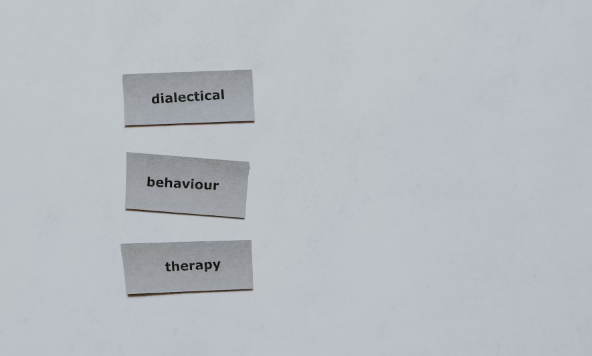Understanding Dialectical Behavioral Therapy for Binge Eating Disorder
What is DBT? Can DBT techniques empower you to overcome binge eating?
EATING DISORDERPSYCHOLOGYTHERAPY


The Basics of Dialectical Behavioral Therapy
Dialectical Behavioral Therapy (DBT) is a type of cognitive-behavioral therapy that was originally developed to treat individuals with borderline personality disorder. Over time, it has been found to be effective in treating a wide range of mental health conditions, including binge eating disorder.
DBT teaches you how to manage your emotions around binge eating, deal with urges to binge, and build better relationships with food. With DBT, you learn to pay attention to what's happening right now without judging yourself, like becoming a mindfulness master. It also helps you understand your feelings better and learn how to express yourself in a healthy way.
How DBT Works with Binge Eating
When it comes to treating binge eating disorder, DBT can be particularly effective. Binge eating is often linked to emotional dysregulation, where individuals may use food as a way to cope with intense emotions. Mindfulness skills taught in DBT help individuals become more aware of their thoughts, feelings, and bodily sensations without judgment. This can be especially beneficial for individuals struggling with binge eating, as it allows them to observe their urges to binge without acting on them impulsively. By increasing awareness of triggers and learning to sit with uncomfortable emotions, individuals can reduce the frequency and intensity of binge eating episodes.
Emotion regulation skills taught in DBT help individuals identify and label their emotions, understand the functions of different emotions, and learn to modulate emotional responses. This is particularly valuable for individuals with binge eating disorder, as they often struggle with intense emotions that may trigger binge episodes. By gaining better control over their emotions, individuals can reduce the likelihood of turning to binge eating as a way to cope.Interpersonal effectiveness skills are also integral to DBT and can greatly benefit individuals with binge eating disorder.
One of the primary advantages of using DBT for binge eating disorder is its comprehensive approach to addressing the underlying emotional and behavioral patterns that contribute to the disorder. By equipping individuals with a wide range of skills, DBT empowers them to make lasting changes in their thoughts, emotions, and behaviors, leading to a reduction in binge eating episodes and an overall improvement in emotional well-being.
Any concerns around DBT?
While DBT has shown promise in the treatment of binge eating disorder, it is not without its limitations. DBT focuses heavily on teaching coping skills and emotion regulation techniques but it may not directly target issues such as hormonal imbalances, nutritional deficiencies, or metabolic dysregulation, which can also play a role in binge eating.
Additionally, DBT's effectiveness may vary depending on individual differences in responsiveness to therapy and the severity of binge eating symptoms. Some individuals may require additional interventions, such as medical management or nutritional counseling, to address these physiological factors effectively.
Therefore, while DBT can be a valuable component of a comprehensive treatment approach for binge eating disorder, it may not provide a complete solution on its own for all individuals.
As with any therapeutic approach, it is essential to consider the individual's specific needs and preferences when determining the most suitable treatment for binge eating disorder.
🚀 Like to learn more about the different approaches between a dietitian and a psychotherapist in treating binge eating?
💘 Curious to know more about other solutions for binge eating? Check out this blog that reviews a variety of apps that support you in overcoming binge eating.
